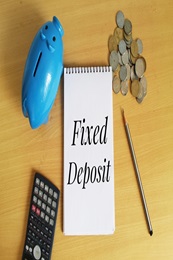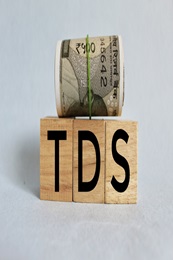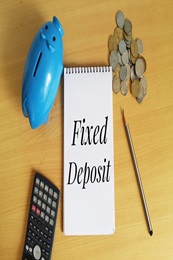How to Utilise Recurring Deposits for Wealth Transfer and Estate Planning
April 26, 2025

In India’s financial landscape, Recurring Deposits (RDs) are considered as one of the most popular savings instruments. However, their potential extends beyond mere savings, offering a strategic tool for wealth transfer and estate planning. As more Indians seek to secure their family's financial future, it becomes crucial to understand how to leverage RDs for these purposes.
This article explores the innovative ways of recurring deposits for wealth transfer and estate planning, providing insights into inheritance savings and long-term financial security.
Understanding Recurring Deposits Wealth Transfer
Recurring deposits are fixed-term savings products that allow individuals to deposit a fixed amount regularly, typically monthly. While primarily seen as a savings tool, RDs can be significant in wealth transfer strategies.
Example: A family in India wanted to financially secure their children's education. They opened a recurring deposit (RD) account, contributing ₹10,000 monthly for 15 years. At maturity, the accumulated amount, including interest, would be used to fund their children's higher education. This strategy ensured a stable financial foundation, instilled financial discipline, and provided potential tax benefits.
Key Features of RDs for Wealth Transfer
| Predictable Growth | The fixed interest rate ensures steady and predictable growth of the deposited amount. |
| Flexibility | RDs offer various tenures, allowing for short-term and long-term planning. |
| Low Risk | Being a bank product, RDs provide a safe avenue for wealth accumulation and transfer. |
These features make RDs attractive for those looking to build a financial legacy for their heirs.
Integrating Recurring Deposits into Estate Planning
Estate planning involves the transfer of wealth and assets to heirs, and recurring deposits can be an integral part of this process. Let's explore how RDs can be effectively incorporated into estate planning strategies.
Example: A family in India wanted to ensure a smooth transfer of wealth to their children after their passing. They incorporated recurring deposits (RDs) into their estate planning. They accumulated a significant sum over time by regularly contributing to RD accounts. Upon their demise, the matured RD amounts would be transferred to their children as part of their inheritance, providing a financial safety net and supporting their future endeavours. This strategy simplified the estate planning process and helped the family achieve their wealth transfer goals effectively.
Creating a Structured Inheritance Plan
Recurring deposits for wealth transfer offer a structured approach to building an inheritance fund. You can ensure timely wealth transfer by setting up RDs with specific maturity dates aligned with significant milestones in your heirs' lives.
- Education Fund: Set up RDs maturing when children reach higher education age.
- Marriage Fund: Create RDs with longer tenures for future wedding expenses.
This approach allows for systematic wealth accumulation and transfer, aligning with the Indian cultural context of planning for significant life events.
Utilising RDs for Staggered Wealth Transfer
Consider using multiple RDs with different maturity periods to facilitate a smoother wealth transition. This strategy helps in:
- Minimising Tax Impact: Staggered maturity can help spread the tax liability for the beneficiaries.
- Ensuring Financial Discipline: Gradual wealth transfer can help heirs learn financial management over time.
By adopting this approach, you can ensure that your wealth is transferred in a controlled and beneficial manner to your heirs.
Legal Considerations in Using RDs for Wealth Transfer
When using recurring deposits for wealth transfer and estate planning, it's crucial to understand the legal implications and requirements. This knowledge ensures that your financial planning aligns with Indian laws and regulations.
Nomination and Joint Account Holders
- Nomination: Ensure that each RD account has a nominated beneficiary.
- Joint Accounts: Consider opening joint RD accounts with the intended heir as the second holder.
These steps can significantly simplify the wealth transfer process and reduce legal complications after the account holder's demise.
Incorporation in Will and Testament
To further solidify your estate planning:
- Explicitly mention RD accounts in your will.
- Clearly state the intended beneficiaries and the purpose of each RD.
This clarity in documentation can prevent potential disputes among heirs and ensure your wealth transfer intentions are honored.
Tax Implications of Using RDs for Wealth Transfer
Understanding the tax aspects of using recurring deposits for wealth transfer is essential for effective estate planning. Let's examine the key tax considerations:
Tax Liability on Interest Earned
- The interest earned on RDs is taxable in the hands of the account holder.
- For the recipient (heir), the principal amount received is not taxable, but any interest accrued post-inheritance is.
Gift Tax Considerations
- Transferring RD maturity amounts to heirs may attract gift tax if it exceeds the annual exemption limit.
- Currently, gifts up to ₹50,000 per year are exempt from tax in India.
Understanding these tax implications can help structure RDs to optimize tax efficiency for both the account holder and the beneficiaries.
Strategies for Maximising RD Benefits in Estate Planning
To fully leverage recurring deposits for wealth transfer and estate planning, consider implementing these strategic approaches:
Laddering RD Investments
Create a ladder of RDs with different maturity dates to ensure regular fund availability for heirs:
| Short-term RDs (1-2 years) | For immediate needs |
| Medium-term RDs (3-5 years) | For upcoming milestones |
| Long-term RDs (5+ years) | For substantial wealth transfer |
This strategy provides both liquidity and growth potential in your estate planning.
Combining RDs with Other Investment Instruments
For a comprehensive estate plan, consider integrating RDs with other financial instruments:
- Use RDs for safe, steady growth alongside higher-risk investments.
- Combine RDs with life insurance policies for enhanced financial protection.
This balanced approach can create a robust financial legacy for your heirs.
Final Thoughts
Recurring Deposits offer a unique and effective tool for wealth transfer and estate planning in the Indian context. By strategically utilising RDs, individuals can ensure a structured, tax-efficient, and legally sound transfer of wealth to their heirs.
Start small, dream big! Invest in Ujjivan Small Finance Bank’s Recurring Deposit and enjoy higher interest rates! Save for your long- and short-term goals with our RD and live a stress-free financial life. Start investing with just ₹100!
FAQs
1. Can I use recurring deposits for wealth transfer to minors?
Yes, you can open RDs for minors with a guardian. This can be an effective way to transfer wealth and provide financial security for young heirs.
2. How does the nomination process work for RDs in wealth transfer?
Nomination lets you specify who becomes the custodian of the RD account upon your demise. It simplifies the transfer process and avoids legal complications for heirs. Please note that nominees are not necessarily legal heirs.
3. Are there any tax benefits in using RDs for estate planning?
While RDs don't offer direct tax benefits, strategic planning can help in tax-efficient wealth transfer. Consult a tax advisor for personalised guidance.
4. Can I change the beneficiary of an RD after opening the account?
Yes, most banks allow changing the nominee. Reviewing and updating nominations regularly as part of estate planning is advisable.
5. How do RDs compare to fixed deposits for wealth transfer purposes?
RDs allow for gradual wealth accumulation, benefitting long-term estate planning, while FDs require a lump sum investment upfront.
6. Can RDs be used to create a trust for wealth transfer?
Yes, RDs can be part of a trust structure. This can be an effective way to manage wealth transfer, especially for large estates.
7. How do RDs fit into the HUF (Hindu Undivided Family) concept in estate planning?
RDs can be opened in the name of a HUF, serving as a collective family wealth accumulation and transfer tool.
8. Are there any restrictions on the amount that can be transferred through RDs?
There's no legal limit on the amount, but large transfers may have tax implications. It's advisable to consult a financial planner for optimal structuring.
Latest Blogs

Best Current Accounts in India: Simplify Your Business Transactions
April 22, 2025
In the fast-evolving world of Indian business, having a reliable current account is more than just a financial necessity—it’s a strategic asset.

Top Savings Account Schemes to Start the New Financial Year 2025–26
April 19, 2025
The beginning of a new financial year isn’t just about filing taxes or revisiting your investment strategy—it's also the perfect time to re-evaluate where you park your money.

Disappointed with Your Savings Account? Switch to This Small Finance Bank
April 17, 2025
In April 2025, following the Reserve Bank of India’s (RBI) repo rate cut from 6.25% to 6%, several major banks have reduced interest rates on savings accounts.

7 Steps to Get Started Your Home Loan Application Process in India
April 16, 2025
Buying a home is one of the biggest dreams for most of us. But with rising property prices, it's not always possible to pay the full amount upfront. That’s where a home loan in India becomes a helpful option.

How to Keep Your Money Growing in a Volatile Market: A Comprehensive Guide
April 15, 2025
The Indian financial landscape in early 2025 has been quite unpredictable. According to Reuters, equity mutual fund inflows slumped to an 11-month low in March 2025 due to growing concerns around sectoral imbalances and global uncertainties.





